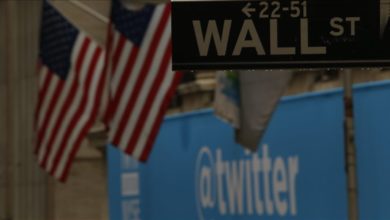WHO lists them as “worrying” “Troublemaker mutation”: epidemiologist warns of new omicron siblings

After BA.2, the WHO now classifies two more Omikron siblings as “concerning”. These are called BA.4 and BA.5 and are also spreading in Europe.
A mutation of the variants in particular worries some scientists. What we know about distribution, infectiousness and vaccination protection.
After Omicron’s “little brother”, the subvariant BA.2, spread worldwide a few months ago, the World Health Organization (WHO) is now reporting two more siblings of the corona mutation: BA.4 and BA.5 are therefore considered “concerning” and have been placed on the list of Variants of Concern by the WHO.
Epidemiologist warns of “troublemaker mutation”
The BA.4 and BA.5 variants show a similar number of changes as other omicron types. They share almost all mutations and deletions with the BA.2 variant, with a few exceptions.
However, one of these changes has experts worried: L452R, a mutation that appears in both the delta, kappa and epsilon variants of the virus. Former Harvard researcher Eric Feigl-Ding called this a so-called “troublemaker mutation” on Twitter.
A week earlier, he had warned that the “notorious bad L452R mutation” could mix with a subvariant of BA.2.
Unlike the XE variant, however, BA.4 and BA.5 are not a combination of two variants, but rather separate virus strains. XE is “a completely different mutant strain”.
How common are the new Omikron variants?
So far there have only been a few dozen cases with the two new variants. As explained by the UK Health Security Agency, BA.4 and BA.5 first appeared in South Africa – and that as early as January 10, 2022.
Since then, in addition to South Africa, Denmark, Botswana, England and Scotland have also been infected with BA.4.
Until last week, only South Africa had reported infections with BA.5. However, according to Reuters, the Botswana Ministry of Health said on Monday that it had also recorded the first cases of BA.5.
Do BA.4 and BA.5 trigger more severe disease progressions?
Just like the omicron variant BA.2, BA.4 and BA.5 are not considered more dangerous than the original mutation according to initial findings. So far, there are no indications that the new variants trigger more severe courses.
“There is no need to panic,” said South African bioinformatician Tulio de Oliveira. He heads the Center for Epidemic Control and Innovation there. So far, the country has not noticed any increase in hospitalizations or deaths.
How contagious are the variants BA.4 and BA.5?
According to de Oliveira, the number of infections has not increased significantly either. According to him, BA.4 and BA.5 have a similar number of mutations as other omicron types and thus a similar spike protein. With this, the corona virus gains access to human cells.
However, the new variants seem to have a small advantage. As Belgian evolutionary biologist Tom Wenseler explained on Twitter, the growth rate of BA.4 and BA.5 is slightly higher than that of BA.2. “If the advantage of BA.4 and BA.5 were based on an immune escape advantage, we might see some new reinfections again,” he warns. However, since the data on the new variants are still incomplete, no serious statements can be made about the infectiousness and severity of the disease at the moment.
And ex-Harvard researcher Feigl-Ding also shared data from South Africa on Twitter and emphasized that BA.4 and BA.5 could soon replace the previously prevailing BA.2 variant.
What do the variants mean for the corona pandemic?
According to bioinformatician de Oliveria, however, it is currently “too early to understand” how the emergence of the two variants will affect the course of the pandemic. The scientists are currently working on characterizing the sublines more precisely and understanding their properties.
So far he has not been concerned, especially given the recent experience with BA.2. The variant led to an extension of the wave of infections, but not to a greater increase in cases, hospital admissions or deaths in South Africa.
Does the corona vaccination work against the new omicron mutations?
There is also no reliable data on the effectiveness of vaccinations. However, it is known from Omikron and BA.2 that the vaccines work less well than against previously dominant variants such as Delta. Bioinformatician de Oliveira nevertheless emphasizes: “Vaccination remains the most important measure to protect against serious illnesses, hospitalizations and deaths – in all variants.”




